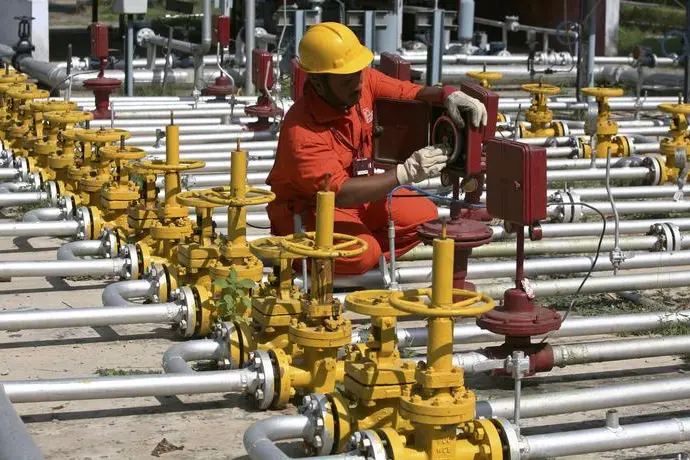PHOTO
Thursday, May 28, 2015
Abu Dhabi: Oil production in South Sudan could fall further if the fighting does not stop and that could cripple the economy which is heavily dependent on oil revenues, an energy analyst said.
South Sudan gained independence from Sudan in 2011 and has one of the largest oil reserves in sub-Saharan Africa.
Oil production in the country is estimated to be around 200,000 barrels per day.
Heavy fighting between troops loyal to President Salva Kiir and the armed opposition faction, led by former vice-president, Riek Machar has forced Chinese National Petroleum Corporation to evacuate its workers last week.
“The disruption in oil production in South Sudan will have little impact on oil prices but it will cripple the country’s economy which is heavily dependent on oil revenues,” Richard Mallinson, an energy analyst from London based Energy Aspects told Gulf News by phone.
He said the market is oversupplied at the moment but the latest development in South Sudan does come in the context of protests and disruptions worsening in Nigeria, production falling in Libya and new disruptions in Canada due to wildfires.
“I think if there is a big increase in disruptions of different types from different countries and cumulatively that could have an impact on market balances, but it won’t be a dramatic one.”
According to him, the oil production in South Sudan has slumped from 400,000 barrels per day in 2013 to less than 200,000 due to the ongoing fight.
“The future of oil production in the country looks negative with the fighting is going on for eighteen months and no sign of easing,” he said.
“That means that not only has the production been heavily impacted now but companies that were investing in exploration or willing to operate are becoming less and less confident about the country. Though the oilfields in the country are not huge, they are an important part of the South Sudanese economy. There is no other export industry available.”
Location
The main oil companies operating in South Sudan include China National Petroleum Corporation, India’s Oil and Natural Gas Corporation and Malaysia’s Petronas.
The country’s oilfields are located in Upper Nile and Unity states.
The production in Unity State is offline because of the fighting and almost all the production is concentrated in Upper Nile state with the largest one being Paloch oilfield, which is at risk due to the ongoing fight.
China has invested heavily in the development of oilfields in South Sudan and imports most of the production.
ONGC Videsh, the overseas arm of the ONGC said this week that its operations in South Sudan projects were temporarily shutdown after internal conflicts and adverse security situation in the country since December 22, 2013.
It said the operations will resume once the security situation improves. The company reported a loss of more than 57 per cent due to drop in oil prices, higher financing cost including exchange loss, higher depletion charge, and impairment provision in one of the assets.
By Fareed Rahman Senior Business Reporter
Gulf News 2015. All rights reserved.





















